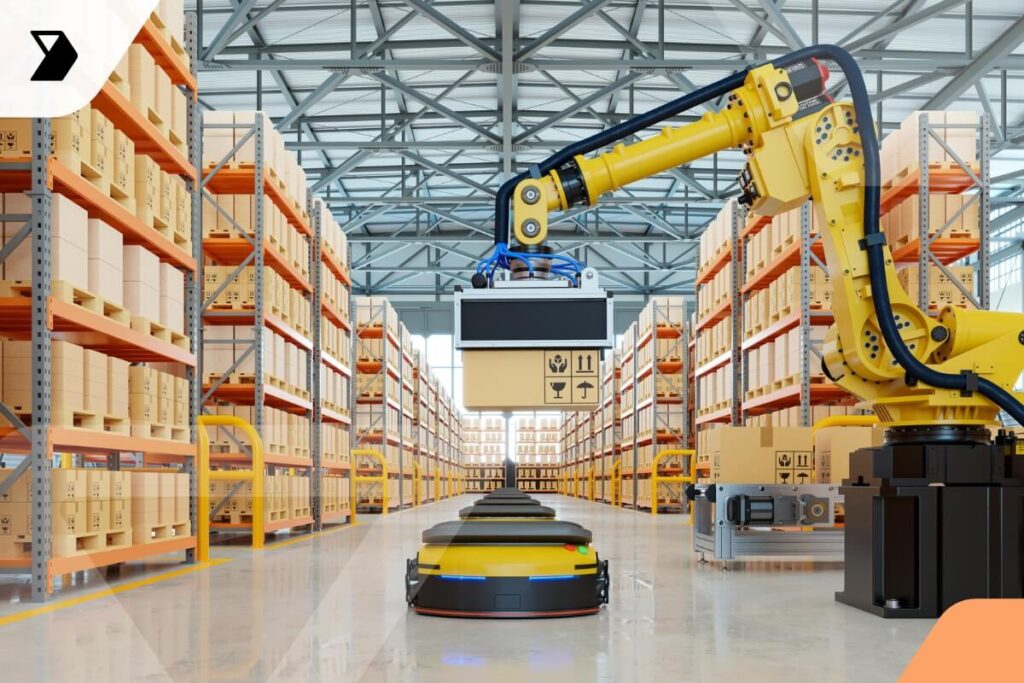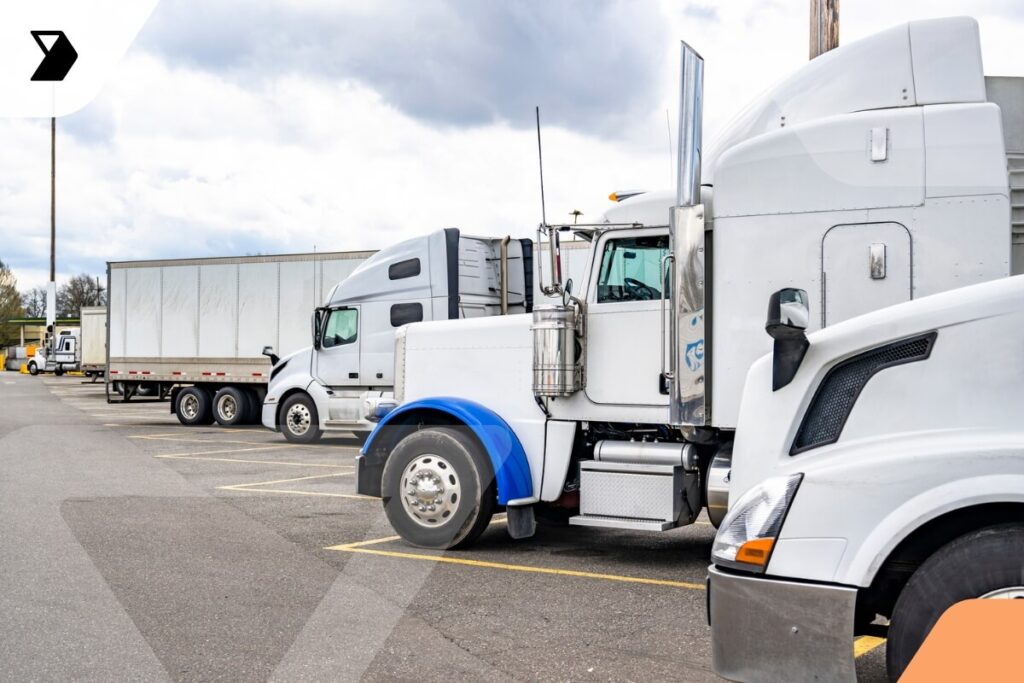What Is a Fleet Manager? Everything to Know About the Role
In theory, logistics is simple. Get the right product to the right people at the right time. In practice, focusing on those three points alone leaves a lot falling through the cracks.
Ready to transform your supply chain?

Who do drivers turn to for scheduling? Who does upper management trust for the best vehicle efficiency procedures? And who keeps an organization’s fleet running—quite literally—like well-oiled machines? The fleet manager.
So what is a fleet manager? A fleet manager is a vital team member for many organizations, but especially trucking and transportation companies. That said, the fleet manager is a vital role for rental car companies and even state, local, and federal government agencies.
So what is a fleet manager? A fleet manager is a vital team member for many organizations, but especially trucking and transportation companies. That said, the fleet manager is a vital role for rental car companies and even state, local, and federal government agencies.
Fleet Manager Topics Covered In This Article
- What Are the Functions of a Fleet Manager?
- What Does a Fleet Manager Do?
- A Fleet Manager’s Responsibilities Toward the Fleet.
- A Fleet Manager’s Responsibilities Toward Drivers?
- The Technology Is a Fleet Manager Responsible For Using?
- What Is a Fleet Manager’s Responsibility to Upper Management?
- What Are the Functions of a Fleet Manager?
- How to Become a Fleet Manager.
- Fleet Manager Education and Experience.
- Fleet Manager Traits and Skills.
- What’s the Pay Range?
- Who Are the Typical Employers?
- What’s the Importance of Fleet Management?
- Logistics Superheroes.
Ready? Let’s dive in!
What Are the Functions of a Fleet Manager?
When a CEO needs records, or a chief financial officer is asking about costs, or a driver needs a schedule, they turn to the fleet manager. Why? Because a fleet manager communicates to both upper-level management and the employees on the ground. He or she provides the data and procedures they need to make the entire organization run smoothly.

Here are some duties that can fall within a fleet manager’s scope of work:
- Driver training and scheduling.
- Vehicle maintenance.
- Vehicle licensing and insurance.
- Documentation.
- Route planning.
What Does a Fleet Manager Do?
A fleet can include planes, trains, automobiles, and even more. However, this term often refers to the cars and trucks used by commercial and public-sector organizations. You probably see these on the road every day. A fleet can be defined as any commercial or public entity that operates 15 or more vehicles or buys 10 or more vehicles in a single calendar year.
Maintaining vehicle performance and operation in a safe and efficient manner are the core responsibilities of a fleet manager.
What Is a Fleet Manager’s Responsibility Toward the Fleet?
Fleet managers are responsible for the vehicles in the company’s fleet throughout each vehicle’s life cycle. First, they research, and then buy or lease the car or truck that will best fit their company’s needs. Next, they license and register it in accordance with Department of Transportation regulations. When the vehicle is part of the their fleet, they coordinate regular maintenance and repairs. And when it’s no longer needed for its original purpose, they sell it or reassign it to another department.
What Is a Fleet Manager’s Responsibility Toward Drivers?
Fleet managers are also responsible for the drivers who operate the vehicles. This involves:
- Setting schedules.
- Ensuring compliance with driver training and maximum hours limits.
- Directing drivers to provide documents on delivery that are needed for invoicing.
A successful fleet manager will be able to communicate safety standards and follow through on risk management protocols as well.
What Technology Is a Fleet Manager Responsible For Using?
Does your business have a fleet of vehicles? That means it likely has a corresponding fleet of technological systems and software tools. These technological tools are sometimes called a business’ tech stack. Who’s responsibility is it to know how to use (and teach) the system? The fleet manager. Some examples include:
- a transportation management system (TMS).
- document digitization application.
- pickup and delivery software.
- telematics, or track and trace software.
- electronic logging device (ELD).
Want more information on this? Check out this free white paper, The Ideal Tech Stack For Modern Fleet Operation Teams.
What Is a Fleet Manager’s Responsibility to Upper Management?
Fleet managers keep detailed records of the fleet’s vehicles and drivers. Upper management —that is to say, executives, directors and other leaders—will typically expect a fleet manager to have a firm grasp on budgeting. In short, a fleet manager must control costs. But the fleet manager must also then report that cost saving. Therefore, some fleet managers will work with a controller to develop metrics and other tools to improve and track cost efficiency. For example, fuel is a major expense and it’s one that a business needs to track closely.
Generally, upper management gives the final word on purchases and expenses a fleet manager wants to make. But everyone likes killing more than one bird with one stone. In general, a great investment for any fleet is to see if it’s time for an upgrade to that aforementioned TMS. If it is, and you want to bring value to your next meeting with upper management, check out document digitization software.
How to Become a Fleet Manager
Fleet Manager Education and Experience
Type in “fleet management degree,” and you won’t find a lot of results. No university in the United States offers a four-year degree in fleet management, though there are related programs. The NAFA Fleet Management Association offers certification programs covering up to eight important disciplines. These include the Certified Automotive Fleet Manager certificate and the Certified Automotive Fleet Specialist certificate. Want to dip a toe into the industry or reinforce your current education? The NAFA gives you the option to take only one or two courses, such as asset management or maintenance management.
For employment, education requirements vary. Some companies prefer a bachelor’s degree in logistics, business, or supply-chain management. Others may require only an associate’s degree. However, the Department of Labor reports that approximately 60% of fleet managers don’t have a college degree. Instead, they hold a high school diploma or GED and have completed some college courses or certificate programs.
Fleet managers communicate daily with everyone from drivers and executives to vendors and suppliers. Therefore, strong written and oral communication skills are a must. On the whole, employers are also looking to hire people with experience in logistics, accounting, and budgeting.
Also, a working knowledge of automotive mechanics will benefit a fleet manager in several ways. A fleet manager can make better decisions and more easily solve problems by knowing the vehicles inside and out. Besides that, it earns respect among the employees he or she manages.
Fleet Manager Traits and Skills
Successful fleet managers may have walked different paths to get their job. But they do have some things in common. According to a survey of fleet professionals, the following are some of the most important traits for success:
- Ability to multitask.
- Good time management skills.
- Adaptability to change.
- Excellent communication skills.
- Good listening skills.
- Ethical business sense.
- Ability to solve problems and make decisions.
- Being goal-oriented lifelong learners.
- Flexibility.
- Ability to innovate.
As you can see, fleet managers require an array of traits, skills, and experience.
What Is the Pay Range?
According to Zip Recruiter, the median annual fleet manager salary is $62,146 across the nation. But there’s upside. Some annual fleet manager salaries reach as high as $98,000.
Indeed, the industry is growing. The US Department of Labor foresees a 10% growth rate for this occupation by 2028. And if you’re looking to get started in this field, you don’t need to wait long. The DOL projects 47,000 fleet manager job openings every year.
Who Are the Typical Employers?
Many types of businesses and organizations move people or product daily. As such, here’s a short list of typical industries that hire fleet managers.
- Federal government agencies, such as the military.
- Local governments and public works agencies, such as parks and water departments.
- City transit systems.
- Airports and airlines.
- Rental car and truck agencies.
- Construction companies.
- Transportation and trucking companies.
- Product manufactures who deliver their own product.
- Food processors and packagers.
- Third-party fleet management services.
What Is the Importance of Fleet Management?
An organization’s fleet may be its main source of revenue or a support for its main business. But either way, the fleet should be supervised with an eye toward efficient operation and cost management. Successful fleet management thus includes systems and procedures that help vehicles and operators function optimally.
Optimal fleet performance requires a high level of attention, organization, and analysis. This might feel like a heavy burden, but don’t worry! There are people out there who make it their business to help fleet managers succeed.
Nowadays, fleet managers have many technologies available. In-vehicle GPS systems track location, gas usage, and speed, for example. Also, by installing remote disabling systems, a fleet manager can prevent an engine from starting or stop a moving vehicle. What a great tool in case of emergency or theft!

Additional tools include fleet management software, which is like a digital third hand that streamlines document tracking and record keeping. By using these transport management systems (TMSs), fleet managers can automate some of their most important duties. Vector’s Delivery to Cash automated billing system is a great example. Apps like this one make life easier not only for fleet managers, but drivers and the accounting office as well.
Logistics Superheroes
That’s a lot of information. You might think a fleet manager sounds half human, half superhero?! Certainly, fleet management is a key area for any supply chain company. In essence, a dependable fleet manager is the hinge on which that fleet turns. If you’re looking for a career that is exciting, ever-changing, and rewarding, grab your cape. Because fleet management may be the one for you.
This post was written by Mallory Tipple. Mallory is a writer, tutor, and community coordinator. Her bachelor’s degrees in agricultural business and wine and viticulture trained her to use her gift of storycraft for the business market.
Continue reading
Ready to transform your supply chain?
Increase efficiency and productivity. Say goodbye to delays, handwriting errors, and time-intensive manual data entry.



